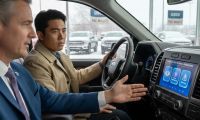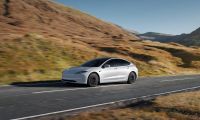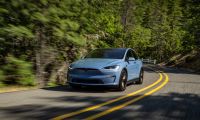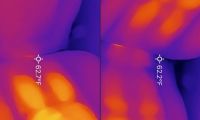Nearly 30 years ago, the phrase quantum computing began appearing in various computer magazines. The only problem with the term was that no one exactly knew what the heck it meant. Indeed, it’s likely that people still don’t know what it means, even as carmakers are applying it to their products, and to others, as well.
VW Has Been Working On The Edge For A Long Time
For example, Volkswagen has been working on quantum computing for a long time. And, while there have been stories regarding the potential of quantum computing opening vistas that were not even possible to view with standard computing, there have been few developments, other than the stories discussing what it potentials were.
That ended this week when Volkswagen announced that it had developed a quantum computing algorithm that will allow public transport organizations and taxi firms to deploy their fleets more efficiently and cut waiting times for passengers.
The new program will enable auto organizations to change forecasts of urban traffic volumes, transport demand and travel times, swapping them for more precise information thanks to better calculations. The announcement in the quantum computing breakthrough was made jointly by Volkswagen and D-Wave, a quantum computing specialist. The news came at the Web Summit technology conference in Lisbon.
Quantum computing can solve highly complex tasks like traffic optimization much faster than conventional supercomputers. Indeed, research has shown that sometimes quantum computing is the only way a solution to find the answer to a problem. Volkswagen believes that using this technology will enable it to find new solutions for particularly tough issues as well as creating new business models.
VW Forges Ahead And Gains Expertise
“Volkswagen is forging ahead with practically-oriented research on quantum computers and gaining essential specialist knowledge” Florian Neukart, principal scientist at VW’s CODE Lab in San Francisco.
For example, VW believes it can optimize traffic models so that transit authorities and cab companies can use their fleets more efficiently. “Our quantum-optimized traffic management system could assist them in the future,” Neuhart continued. “We want to gain an in-depth understanding of applications of this technology which” can be beneficial to VW, and, by extension, others.
At this point, since the groundwork of quantum computing has been laid down, the next “era of quantum computing is application development,” Bo Ewald, D-Wave president, said in an interview. D-Wave has been “focused on enabling practical quantum application development,” Ewald continued. D-Wave has been focusing on applications since it opened its doors.
Quantum Computing Solves Complex Problems
“Volkswagen’s innovative work using D-Wave quantum computers to pursue complex problems such as traffic optimization” is an example of the real-world impact quantum computing can have on both business operations and people’s everyday lives,” Ewald concluded.
Sources: Volkswagen, D-Wave
Set as google preferred source











